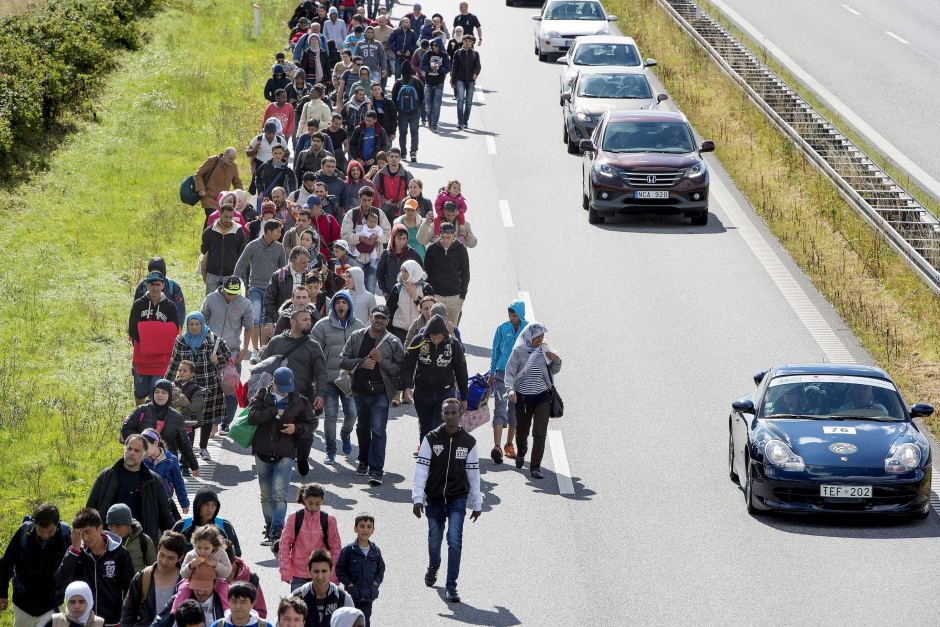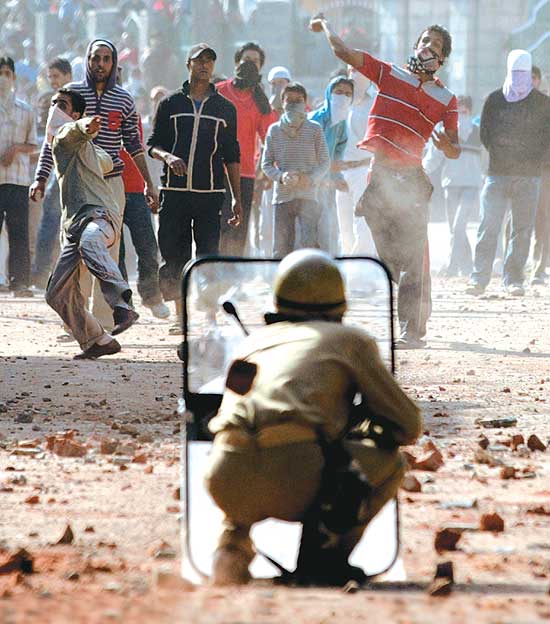Increasing discrimination against Afghan refugees in Europe reveals a disturbing double standard in its asylum system, where governments can contravene international provisions of asylum and grant sanctuary based on an applicant’s nationality. Behind this lies the obvious reality of skyrocketing xenophobia, but there is another worrisome factor at play: whatever their interests may be, European officials are either shamelessly ignorant of the ongoing war that has ravaged Afghanistan for the last four decades, or are in deliberate denial of its reality.
The Other Refugee Crisis (Of the Last 4 Decades)
From 1981 to 2013, most of the world’s refugees were from Afghanistan. Prior to the surge in victims fleeing the brutal war in Syria, the UNHCR reported that one out of every four refugees in the world were Afghan, the majority of whom were located in Pakistan and Iran. Nevertheless, with 2015 being the deadliest year for civilians, refugees from Afghanistan make up one quarter of the total number of refugees crossing the Mediterranean sea to Europe, making them the second largest national group undertaking the perilous journey.
Those that survive the treacherous course from Turkey to Greece have done so at the cost of selling all of their assets or borrowing money from loved ones to pay smugglers. Other accounts describe how families unable to pay smuggler fees are forced to walk for weeks at a time through Iran and Turkey to reach Europe, where the trek is not only gruelling, but incredibly dangerous.
As if the conditions at home and on the road aren’t distressing enough, Afghans attempting to cross into Europe from Greece are greeted with rejection from Macedonian border guards. Those who find themselves in Germany may face deportation back to the circumstances they risked their lives to flee from. Those who don’t make it that far but attempt to cross into the Balkans are forced to watch refugees from other countries allowed passage, while they remain stranded in foreign and hostile territories.
Europe’s Unilateral Rejection
Unilateral policy shifts among several European governments is to blame. In February 2016, security chiefs of Austria, Croatia, Serbia, Slovenia, and Macedonia met in Zagreb to sign a joint agreement on their coordination of the migration flow through the Balkans which, among many other restrictions, accepts only those seeking asylum from ‘war torn areas’. The preamble of the text states its intention for “the migration flow along the Western Balkans route… to be reduced to the greatest possible extent”, while its clauses alter the definition of refugee as per the 1951 Convention and 1967 Protocol relating to the Status of Refugees. Giving themselves the agency to choose which nationality fits under the legal definition (see here for the UN Refugee Agency’s clarification), rather than assessing applicants on an individual basis as is required, Balkan governments are paving the way for a mainstream shift in the asylum system. That much has been shown in the domino effect it has had.
German Chancellor Angela Merkel’s recent announcement of a deportation policy (dubbed ‘repatriation’ by German officials) of Afghan asylum seekers is an example of this shift. Despite the international principle of non-refoulement, which prohibits both declining claims without individual assessment and returning refugees to a territory where their freedom or safety is threatened, Merkel’s proposal would deport Afghans to areas deemed ‘safe’ by the German government. These zones include the capital Kabul, where reports and coverage of insurgent violence shows that terrorists in Afghanistan are increasingly targeting government-controlled areas as a tactic. Unless Afghan asylum seekers have worked for the German military or can prove they were fleeing personal persecution, they are ‘economic migrants’ in the eyes of Merkel and thus sent back.
It should be noted that Afghan refugees who have spent “longer time” in a “safer” third world country prior to Europe will find themselves also banned because of these policies. This logic is questionable since the ‘safe’ third world countries named in the Balkan agreement include Iran – where the situation for Afghans fleeing conflict is anything but. In 2013, Human Rights Watch reported on arbitrary arrests, detention, and brutal emotional and physical abuse of Afghan refugees by the Iranian authorities, while also systematically withholding citizenship and engaging in widespread deportations to Afghanistan. Turkey, another country named on the statement, is also notorious for its inhumane treatment and illegal deportations of refugees in its borders.
No war in Afghanistan?
Perhaps four decades of brutal warfare has worn out officials dealing with and seeking to put an end to the conflict. The lack of media coverage in the recent past shows that the plight of Afghans isn’t perceived as dire enough, or maybe enduring bloodshed has become outsiders’ expectation of the region. Regardless, a war is not difficult to identify. One of the most concerning ramifications of the European attitude (and the lack of international response) is its erasure of the gut wrenching reality of persecution for civilians enduring unimaginable experiences on a daily basis in Afghanistan.
Yes, war is still going on in Afghanistan. And it’s getting worse. As in every case of conflict, those bearing the largest burden are the ones most vulnerable and removed from its cause – civilians. The United Nations Assistance Mission in Afghanistan (UNAMA) reported that civilian deaths in 2015 were not only on the rise, but also the worst on record (11,002 known deaths in one year alone). Over 60% of these casualties were attributed to anti-government violence, which are nearly always deliberate and extensive.
As the report found, suicide attacks and targeted killings in Afghanistan are on the rise, while aerial operations of national and international military forces in the country contribute to an 83% rise in civilian deaths. Of these numbers, women and children make up a disproportionately large amount, and advocates for their rights, as well as females working in the public sphere (such as government posts) continue to be targeted heavily. The Taliban takeover of a government stronghold in late 2015 – the key province of Qunduz – points out their boost in strength and coordination, and the concurring weakness of the national forces, despite years of international aid and training.
Refugees fleeing conflict and instability in Afghanistan are being turned away because stable and privileged administrations in the western world deem their plight as illegitimate grounds for asylum. But a refugee policy which accepts or denies asylum seekers based on their national origin is entirely inconsistent with the reason for granting victims of persecution or disaster a safe haven in the first place.
For an esteemed, influential politician of a powerful nation with a reputation for welcoming refugees in the last few years, Merkel’s proposals and the reasons they are grounded on are not just deplorable but also terrifying. Her statements reinforce the method of the Balkan states, denying that the decades-long plight of Afghans is “not dire enough” for them to deserve safety. And it is terrifying because this deliberate disregard itself generates and reinforces a larger system where matters fundamental rights are instead becoming individual privileges, the latter being determined solely by those with the highest advantages.




